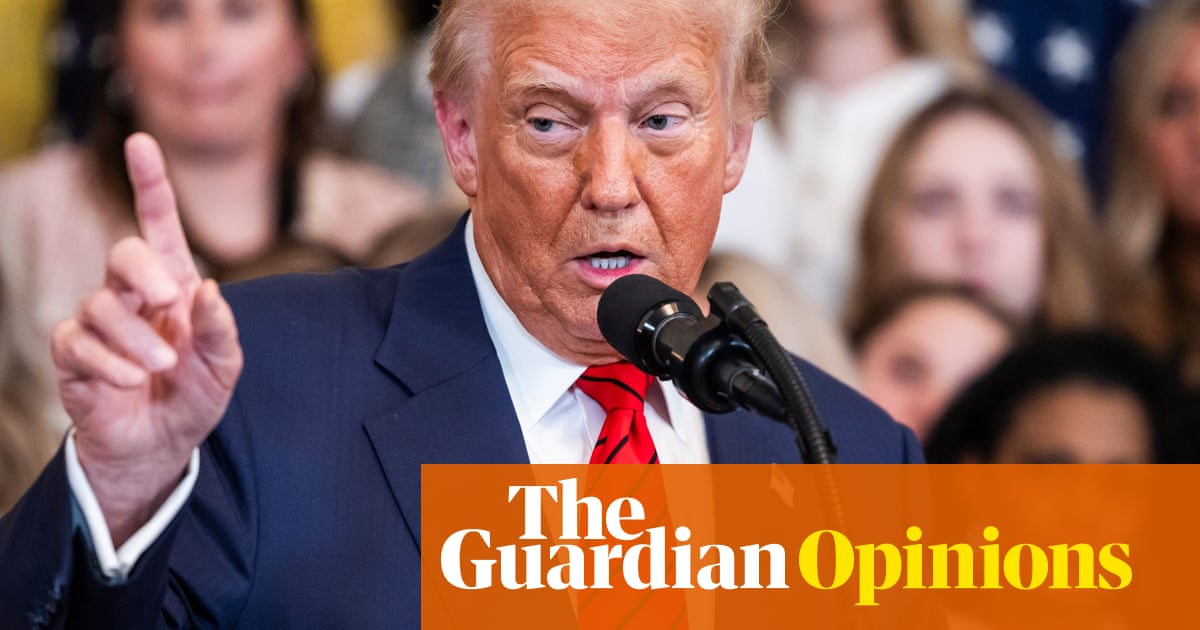Organising a women’s networking event in the US has become an act of defiance. Companies with equality-driven agendas risk losing government contracts. Some are receiving McCarthy-like letters asking them to confirm that they have no diversity policies. Activities designed to support women, includinghealthcare research, are being threatened, and companies are backtracking on former commitments. Women’s networking events, the gathering of diversity data and targeted training are being questioned. And some companies are requesting that charities focused on women and girls consider changes to their programmes in order to navigate the current climate. The one I founded, Inspiring Girls, has already been asked to “include men as role models”.
This anti-diversity wave isn’t just a social backlash to the many excesses of wokeness – it is politically orchestrated and driven. It crystallised in 2021, when the senator Josh Hawley devotedhis entire keynote speechat the second National Conservatism Conference to “reclaiming masculinity”, calling for boys (not girls) to be taught competitiveness, strength, honesty and courage – as if those were only male values. Since then, the movement has reached the highest offices of power: the White House is its headquarters and its commander-in-chief is Trump’s deputy chief of staff,Stephen Miller, who promised last year to tackle “anti-white racism” if Trump won a second term.
The anti-diversity brigade has no shortage of money or allies: several “tech bros” (whether out of conviction or FOMO) have joined in – as have tech venture capitalists and other Maga financiers. These are men who operate in fields dominated almost exclusively by other men and who wield enormous wealth and influence, yet they often cast themselves as victims. They hide their anti-diversity stance under the disguise of meritocracy.
On the progressive side, there is a movement claiming that it is actually boys – particularly white working-class ones – rather than girls who are “in crisis”. It is led by the AmericanInstitute for Boys and Men, which last week receiveda $20m grantfrom Melinda FrenchGates. They argue that boys lag behind girls in education and employment. It is true, of course, that many of themanufacturing jobsthat many young men used to rely on are vanishing due to automation and tech (ironically, for the benefit of mostly male tech moguls). Unfortunately, however, this well-meaning movement is fuelling the anti-diversity brigade’s narrative – because they can now claim that even progressives admit it is white men who are suffering.
The Trump administration has not yet imposed specific obligations on businesses to withdraw diversity programmes beyond companies who have contracts with the government – including, now,some companies across the EU, but many are taking spontaneous actions. Some companies are doing so because their diversity policies were just for show, while others are simply acting out of fear.The trend is clear: many areeliminating referencesto diversity and equality from their websites and in their reporting; others are reneging from aspirational targets, stopping data-gathering on recruitment and promotions, and dismantling training programmes.
Some of the companies that are backtracking have headquarters in the UK or Europe. And many of the US tech companies and funds that are leading the diversity backlash have subsidiaries and offices on this side of the Atlantic. Their actions are in straightforward conflict with the letter and the spirit of British and EU legislation on equality, such as EU corporate sustainability reporting rules or equal opportunities and equal pay directives.
And yet the equality ministries in the British and other European governments – and in the European Commission – have remained largely silent. Most equality ministries and agencies are led by herbivorous politicians and officials who favour performative programmes over meaningful action. Confronting Trump is far too scary for them, which is why they have not set the limits of what companies can and cannot do, whether specifically or in general guidelines.
Over time, it is possible the anti-diversity movement will yield some positives, as it could drive companies who continue to believe in diversity towards more meaningful, effective and data-based policies. Besides, in a litigation-led country such as the US, it is only a matter of time before the courts impose some limits on government-led anti-diversity intimidation. When they do, the backlash against companies that have acted spinelessly will have its own consequences.
But the UK and the rest of Europe cannot be passive spectators waiting for the pendulum to swing again. Our equality authorities should counteract Trump’s raid on diversity by providing clear official guidance to companies on what they can and cannot do – it is their legal and moral duty to do so. America First should not mean America Everywhere when it comes to the fundamental principles of diversity, equality and inclusion.
Miriam González Durántez is an international trade lawyer and the founder and chair of Inspiring Girls
